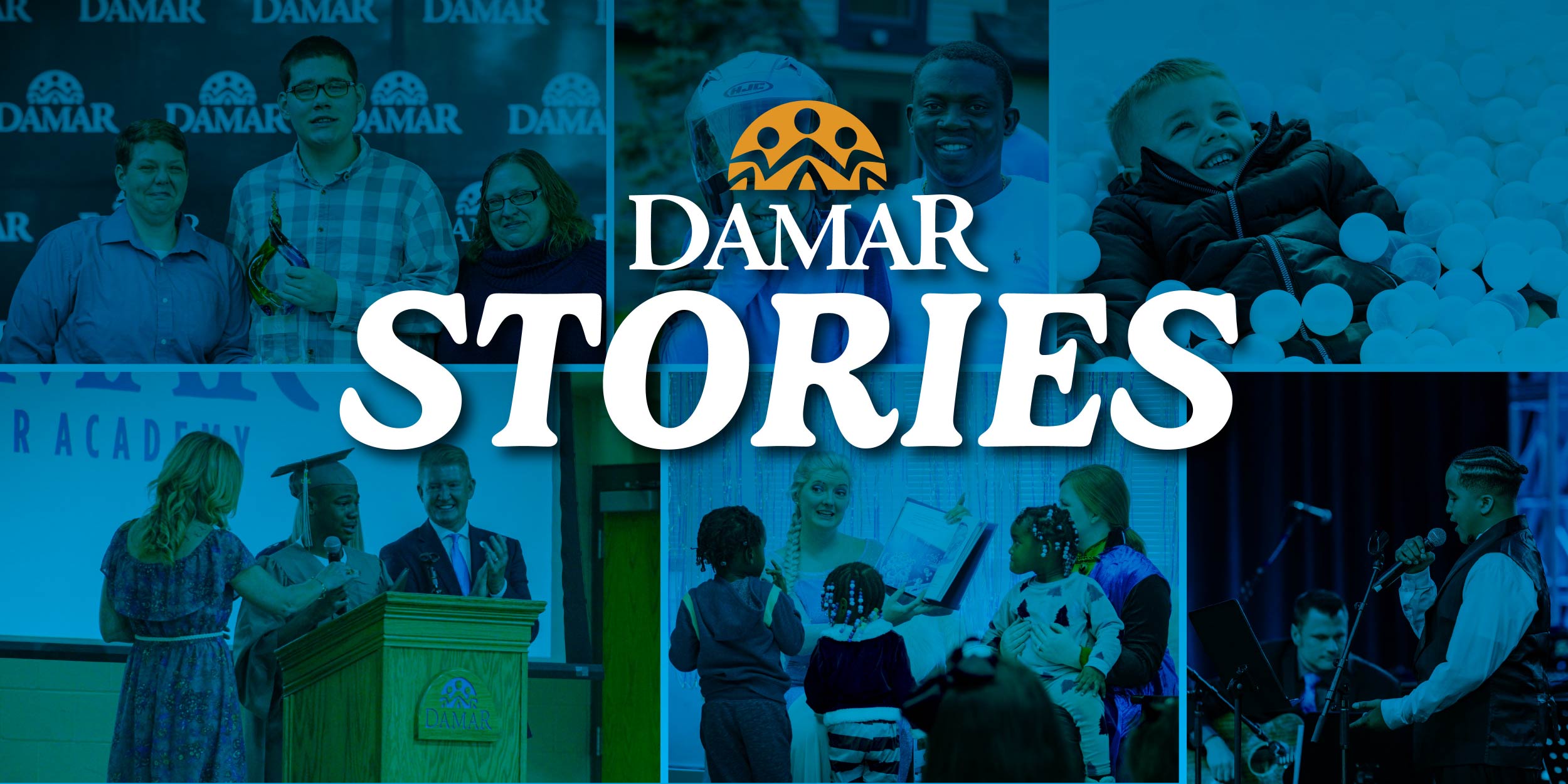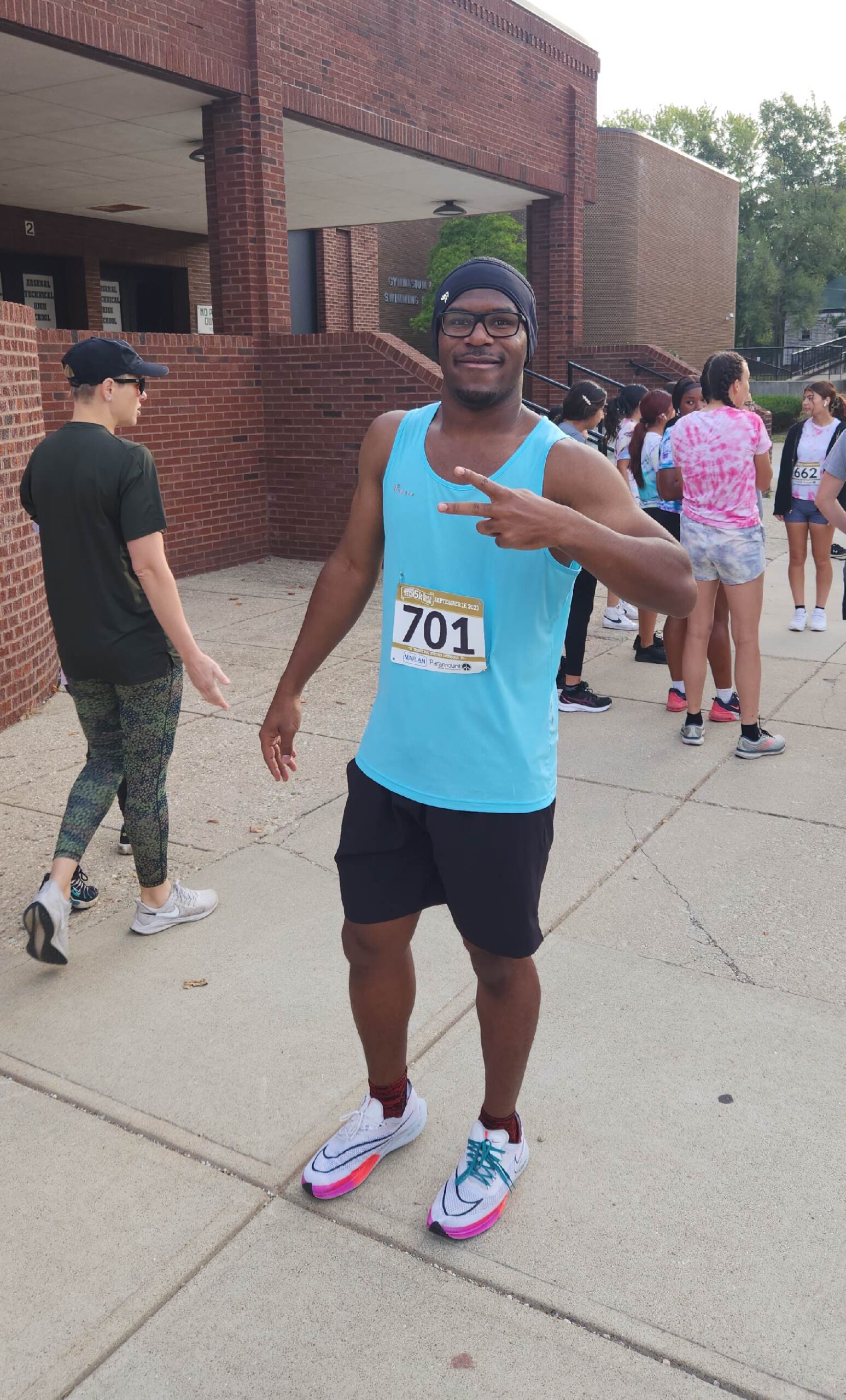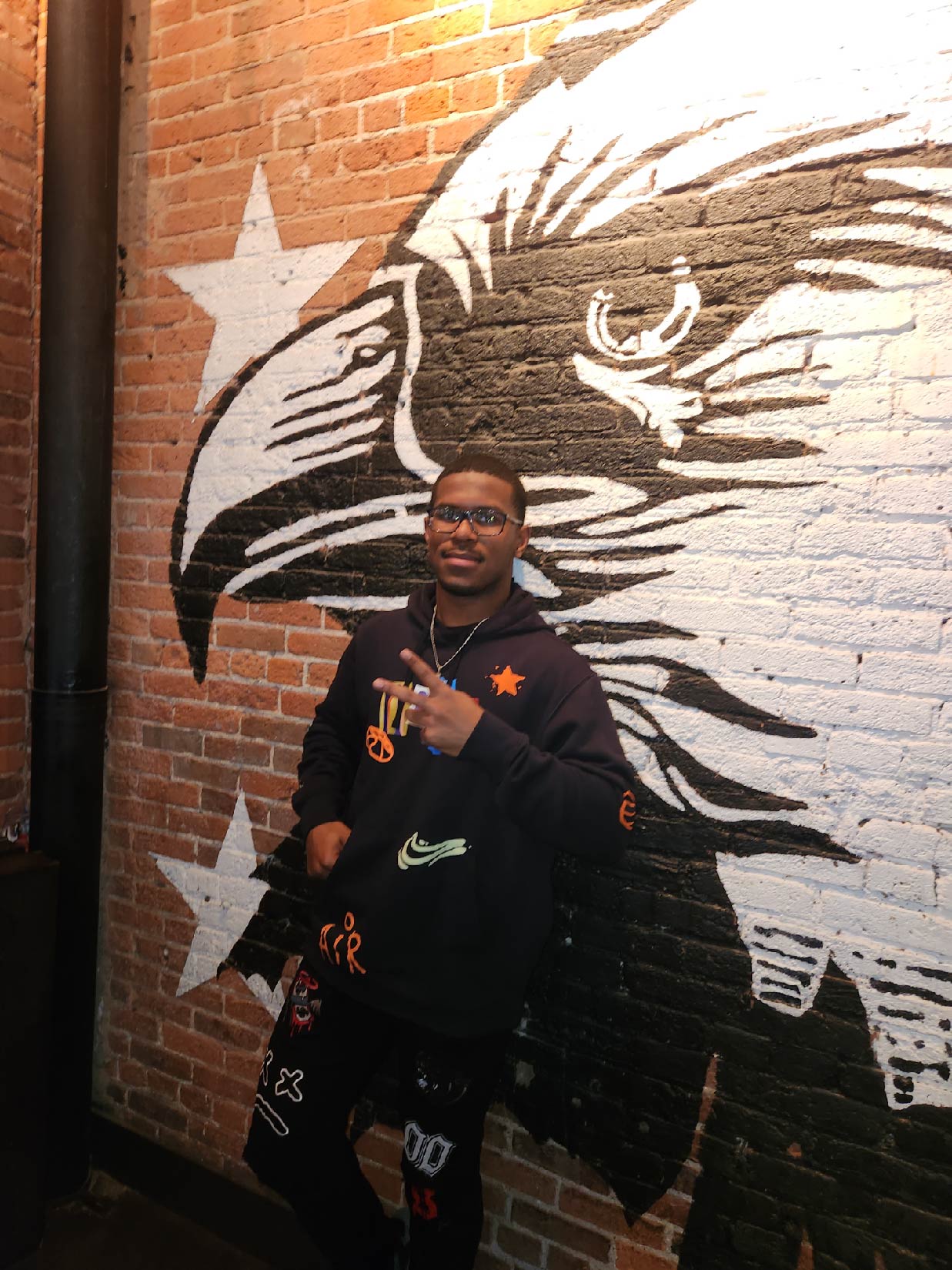
Running into the Future
Karachi Warren has chalked up two major milestones in a short time. The 22-year-old recently moved into his own apartment, and this summer he’ll start a job at Community Hospital. His mom, Precious Johnson, couldn’t be prouder. But she admits that these big steps come with some mixed emotions.
“Mom was teary there for a while,” she said about Karachi’s move to his Carmel apartment. “It got awfully quiet around here.”
The journey to these accomplishments was a long one, Precious says, starting when Karachi was diagnosed with autism at age 3. “It was a lot,” she said. “Me and my family didn’t understand what was going on.”
 But it seems Precious got a handle on things pretty quickly. Working with his elementary school, she got Karachi one-on-one support, which continued through middle school. Connecting with Damar Services when Karachi was about 12 was also a big help, as she’s found Damar to be consistent and supportive throughout Karachi’s transition from teen to young man.
But it seems Precious got a handle on things pretty quickly. Working with his elementary school, she got Karachi one-on-one support, which continued through middle school. Connecting with Damar Services when Karachi was about 12 was also a big help, as she’s found Damar to be consistent and supportive throughout Karachi’s transition from teen to young man.
Another big step on that journey came in 2015, Precious says, when she married Paul Johnson. Having a male around to “teach Karachi how to be a man” was a big part of his growing up. “I’ve got to give my husband props,” she said.
You only need to spend a few minutes on Karachi’s YouTube channel – Running with Karachi – to see that he has developed into a man who is driven, upbeat and confident. A dedicated runner, he posts serious videos of himself training along with fun clips of him unboxing new shoes, acting like he’s passed out from working out too hard and goofing around in other ways.
Getting from the just-diagnosed three-year-old to the athlete on the YouTube channel has been challenging at times, Precious says, and she credits Damar with walking alongside the family throughout it all. The fact that so many of the people they work with at Damar have been there for years has been especially helpful, as has Damar’s relentless flexibility. “When we needed to change something, when something came up that we weren’t expecting, they were always helpful,” she said.
 Asked what advice she would give to parents just beginning the journey with a child with autism, Precious’ response was simple and direct. “Ask questions,” she said. “Talk to anybody you can.”
Asked what advice she would give to parents just beginning the journey with a child with autism, Precious’ response was simple and direct. “Ask questions,” she said. “Talk to anybody you can.”
She also would urge parents to attend every workshop, seminar, class and parent group they can, and take part in support groups. “You can’t do this alone,” she said.
In fact, although Karachi’s big milestones focus on his learning to live and work alone, even he hasn’t achieved what he has alone. To this day, he relies on the network of people at Damar and beyond who support him and encourage him. “He has a village,” Precious says.